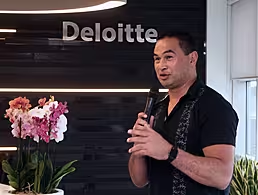Start-ups can run into costly issues if they don’t protect their intellectual property when engaging interns and contractors, explains Mason Hayes & Curran.
Part one of our two-part series on engaging interns highlighted the absence of law clarifying the status of interns in Ireland. For organisations rich in intellectual property (IP), this may impact their ability to commercialise the fruits of their labour where interns may have created (jointly or alone) important IP.
Start-ups at risk
Organisations are often satisfied getting interns to sign simple non-disclosure or confidentiality agreements, as they can’t foresee them creating any intellectual property during their internship. However, if an intern creates and/or develops any IP, a confidentiality agreement is unlikely to catch this and, consequently, the IP may not belong to the organisation.
It’s not uncommon for early-stage tech companies to use student software developers, graphic designers and similar as a form of low-cost labour, while students benefit from working on real projects. However, the uncertain legal status of interns means that failing to secure IP they created in the course of their work could prove costly for a start-up, especially if future investment is based on the start-up owning all of their IP.
‘There is no guarantee that IP created by an employee at work will be deemed to have been done in the course of employment’
Owning your intellectual property
The four principal IP rights are trade marks, industrial designs, copyright and patents. Each of these rights has statutory protection in Ireland.
Generally, save for certain exceptions, the person who creates IP is the first owner of it and can decide how it’s used, if at all. This includes contractors. However, under Irish copyright, industrial designs and patent laws, there is an exception that any work made by an employee in the course of employment belongs to the employer, unless otherwise agreed.
Therefore, the two crucial factors in an employer-employee IP dispute are whether the employee is, in fact, an employee; and whether the work was done in the course of employment.
Employees vs contractors
A question often arises in IP disputes as to whether an individual was hired as an employee or independent contractor. This can affect ownership of IP, as a contractor generally retains the IP in commissioned works unless it’s assigned in writing to the employer.
Normal employment law rules apply when considering whether a person is an employee or contractor, i.e. a degree of control over the worker; integration into the workplace; mutuality of obligation, entitlements, tax arrangements etc. However, assessing whether IP works were created in the course of employment is not always clear.
Casting a wide net
In the leading English case of Stephenson Jordan and Harrison Ltd vs MacDonald Evans, an employee gave accountancy lectures outside of work, and later authored a book that included the lecture materials. Notwithstanding that he used his employer’s office facilities when preparing the book, the court held that neither lecturing nor writing the book was in the course of his employment. On this basis, the court held that the employer was not the rightful owner of the copyright in the book of lectures.
This was again applied in Noah vs Shuba. In this case, an employed consultant dermatologist wrote a book related to his employment, in consultation with work colleagues and using his employer’s letterhead. The book was even published by his employer. However, the employer was not held to be the copyright owner as it was not done in the course of the employee’s employment.
As can be seen from these cases, there is no guarantee that IP created by an employee at work will be deemed to have been done in the course of employment. For this reason, it’s recommended that employment contracts cast a wide net when dealing with employee IP, to cover tasks not falling within the employee’s normal duties and work done outside of the office and working hours.
IP rights of independent contractors
There are no Irish statutory provisions dealing specifically with contractors’ ownership of IP created in commissioned works or during the course of their engagement. Therefore, contractors are generally entitled to the IP they create unless their written contract (if any) assigns these rights. This is the case even where the contractor is hired specifically to provide a particular piece of work, e.g. to develop a website.
‘Contractors are generally entitled to the IP they create, even where the contractor is hired specifically to provide a particular piece of work’
This is a common issue where organisations have invested heavily in contracted works only to find they don’t own the end product. This should be dealt with before any work is done by having a written IP assignment, signed by the contractor.
Failing this, the hirer may have to go to court to assert its rights to the contracted work. However, the courts generally don’t like implying terms into a contract. If successful, some (uncertain) form of licence to the commissioned work, rather than an assignment of all rights, would be the more likely outcome.
How does this apply to interns?
As there is no Irish law or guidance on the status of interns, organisations should ensure that there’s no uncertainty as to the ownership of IP created by their interns.
If an intern were deemed an employee, there would be no guarantee that any IP created by an intern would automatically vest in the employer, particularly if there were a dispute over whether the IP was created during the course of employment.
If an intern were not deemed an employee, one would assume that ownership of the IP created by an intern would be treated the same way as IP created by an independent contractor (i.e. the intern would own the IP unless assigned in writing).
Therefore, while the legal status of interns remains unclear, employers should take no chances if there is a possibility of interns creating or contributing to the organisation’s IP.
The only way to secure IP, irrespective of the intern status, is to get them to sign written assignments of all IP (present and future) to the organisation, even if there’s no expectation of them developing IP. The assignment should be complemented by robust confidentiality and non-disclosure provisions.
The content of this article is provided for information purposes only and does not constitute legal or other advice.
Tech Law is a weekly series brought to you by Irish law firm Mason Hayes & Curran, whose legal tech team advises the world’s top social media organisations and emerging start-ups. Check out www.mhc.ie for more.
Want stories like this and more direct to your inbox? Sign up for Tech Trends, Silicon Republic’s weekly digest of need-to-know tech news.
Intern at start-up image via Shutterstock




